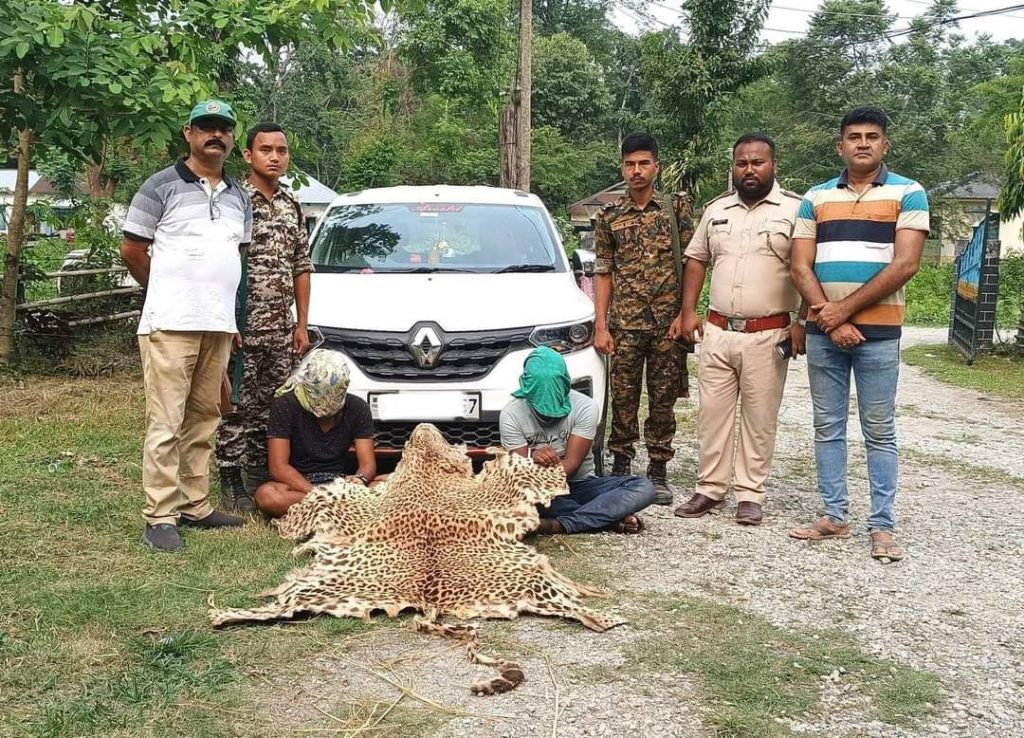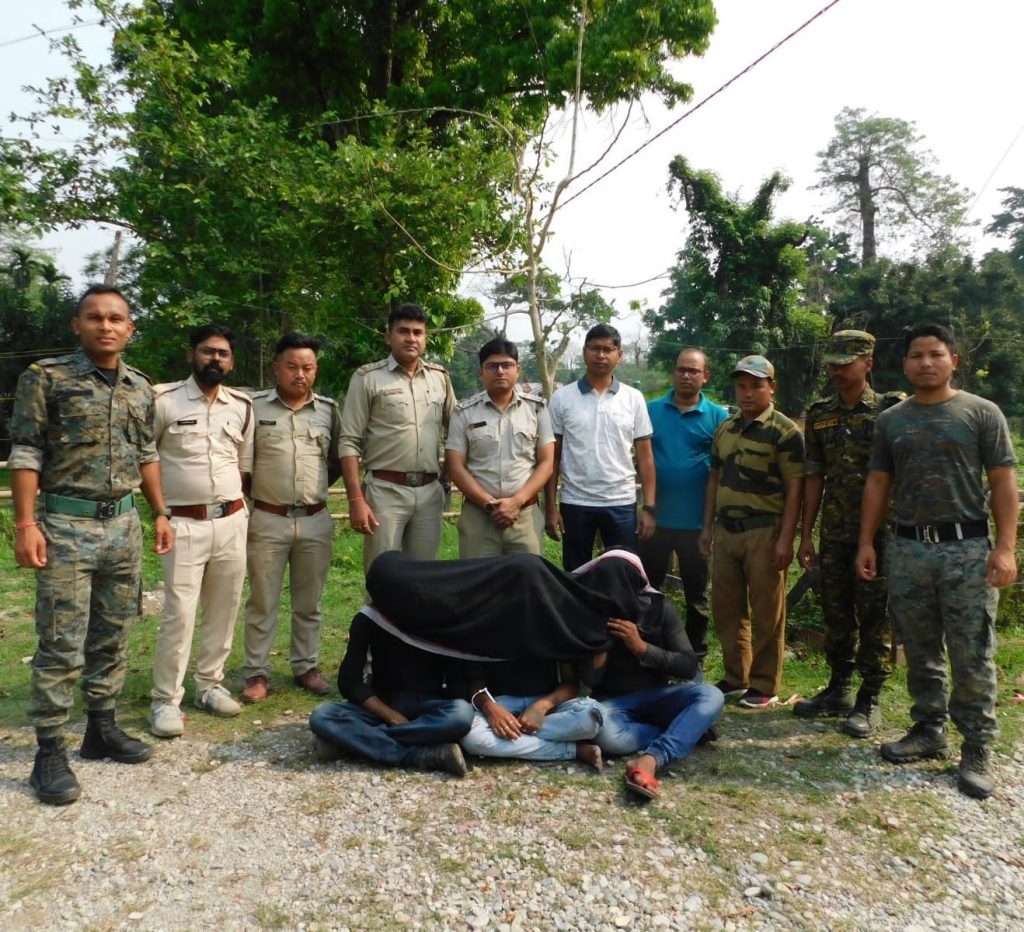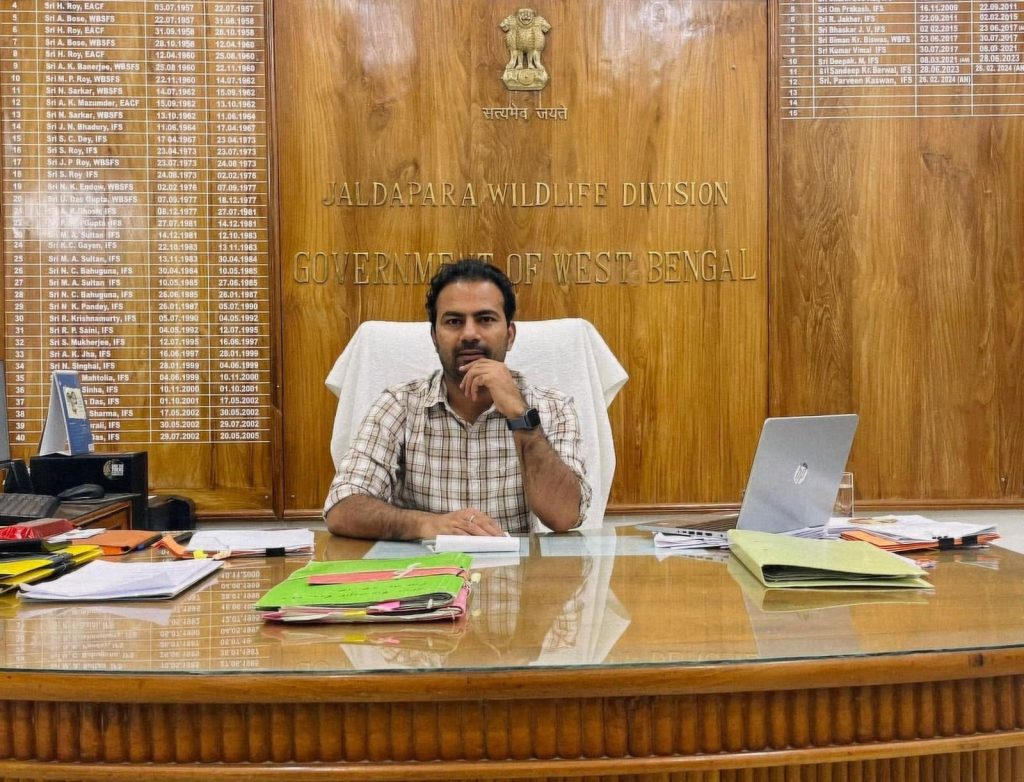As the Jaldapara National Park lies near the international border, the poaching threat is
ever-present. In 2024, convictions happened in 17 cases. Of these, eight were related to
wildlife crimes, writes Deepanwita Gita Niyogi

In Jaldapara, a national park situated in the Eastern Himalayan foothills of West Bengal’s Alipurduar district, a remarkable rhino conservation story has been scripted in four decades.
The turnaround was possible due to interventions like patrolling using trap cameras and drones, creation of pools where rhinos can take a dip and fodder grass plantation.
There are also 45 anti-poaching towers and camps placed at strategic locations inside Jaldapara.Elephants are pressed on duty, especially on full moon nights. This is because guided by the silvery rays, animals are easy to kill.
The numbers tell the story. In 1985, the park had 14 rhinos. At present, the number is 292. But despite the success, challenges remain. As Jaldapara lies close to the international border, the poaching threat remains ever-present. However, the conviction rate is high. Last year, many poachers were imprisoned.
As per the data shared by the park authorities, convictions happened in 17 cases. Among these, eight were wildlife crimes. Three cases were related to the transboundary smuggling of Burma teak. The smugglers were convicted for trafficking the teak through northeastern India. Each vehicle carried timber worth Rs 30-35 lakh.
Commenting on the convictions, Indian Forest Service officer Parveen Kaswan, the in-charge of Jaldapara National Park, said that his team is known for efforts in protecting the one-horned rhinoceros and conserving wildlife.
Threat of wildlife crimes
In India, the conviction rate in wildlife crimes is low. “So, Jaldapara signals an achievement. This is an all-time national record. Nowhere else, there have been so many convictions,” Kaswan added.
Those convicted received prison sentences ranging from three to five years. They were involved in the trafficking of rhino horns, leopard skins, and pangolins. The timber smugglers were part of an international smuggling network, involving countries like Myanmar, Bhutan, Nepal, China and Bangladesh, besides India.

The arrests involved months of tracking with police assistance. “They happened as a result of intelligence gathering, swift operation, and inter-agency coordination. Rikoch Narjari, who was involved in many rhino poaching incidents in Jaldapara, was nabbed in March from Kamrup district ofAssam,” Kaswan informed. Now, he is under trial in Jalpaiguri.
Narjari was the kingpin of the rhino poaching group active in Jaldapara. He used to sell rhino horns to parties in Myanmar through handlers. His arrest has thrown up vital information.
The forest officer pointed out that such breakthroughs in law enforcement are vital. “They not only lead to the removal of dangerous individuals from trafficking networks, but send out a deterrent message that wildlife crimes will not be tolerated.”
The status of the greater one-horned rhino (Rhinoceros Unicornis) is vulnerable. There are about 4000 individuals across India and Nepal. The species faces threat as a result of poaching which takes the form of an organized crime. The last poaching case happened in Jaldapara in 2021 during which one animal was killed.
“Two to three poaching groups are active in Jaldapara. When demand is floated internationally, they become active. During the Bodoland movement, many weapons were floated. There is no shortage of arms. One kg rhino horn costs over Rs 1 crore in the market. As poaching is lucrative, locals sometimes help poachers. They are ready to face jail for money received in lakhs,” a source said.

In the villages surrounding Jaldapara, there is a prevalence of mixed culture as a result of marital relations with states like Assam. Poachers take advantage of it.
Tackling poaching
Multiple arrests and subsequent convictions in Jaldapara have set a precedent for effective wildlife law enforcement across India. This will encourage forest officers in other states. Indian Forest Service officer Mohan Pargaien, who launched “Catch the Trap” in Telangana to prevent wildlife killing and hunting, informed that conviction in wildlife crime is usually less than 10 percent.
“The reasons are lack of incentive for committed officers, more priority accorded to territorial functions than wildlife issues, lack of dedication and concern for wildlife among field staff and low priority coupled with inadequate capacity of legal knowledge, leading to poor evidence collection as well as charge-sheet filing in courts,” the officer, now retired, said.
Kaswan relies on a strong network of informers, who keep a track of happenings in and around Jaldapara. They also keep an eye on major wildlife trafficking routes. “My team tracks smugglers and poachers through informers. They also take the help of technical intelligence network supported by the police. In some cases, arrests have been made after months of tracking and also from outside Bengal.”
A notable example was that of Leken Basumatry, involved in 10 rhino poaching cases. The poacher, who had killed four rhinos, was arrested from Assam and faced trial. But he died in judicial custody due to illness.
According to Jose Louies, the chief of enforcement and in lead of the division which handles wildlife trade control and litigation in the Wildlife Trust of India, the Wildlife Protection Act, 1972, is one of the best Acts to protect animals, but unless powers are exercised, criminals are not going to be deterred. The fear of punishment has to be there.
“The challenge often lies in poor documentation of cases as well as poor resource allocation for forest cases. Sometimes, the forest department is unable to follow up cases in court,” Louies said.
On his part, Kaswan attributed the record convictions to the completion of investigations on time, the appearance of key witnesses and a strong legal team.
Lawyer Apai Dutta, who represented one the accused, blamed the forest department for framing poor local people in fake cases. He said that poachers are definitely there but they come from outside Bengal. In response, Kaswan added that multiple convictions prove the scale of poaching and the dedication of his team.













